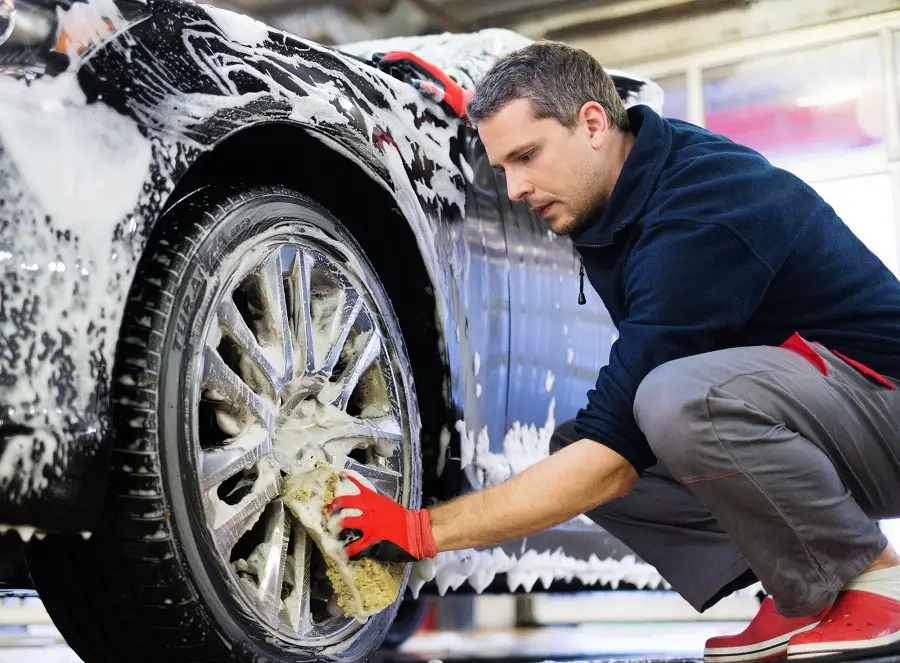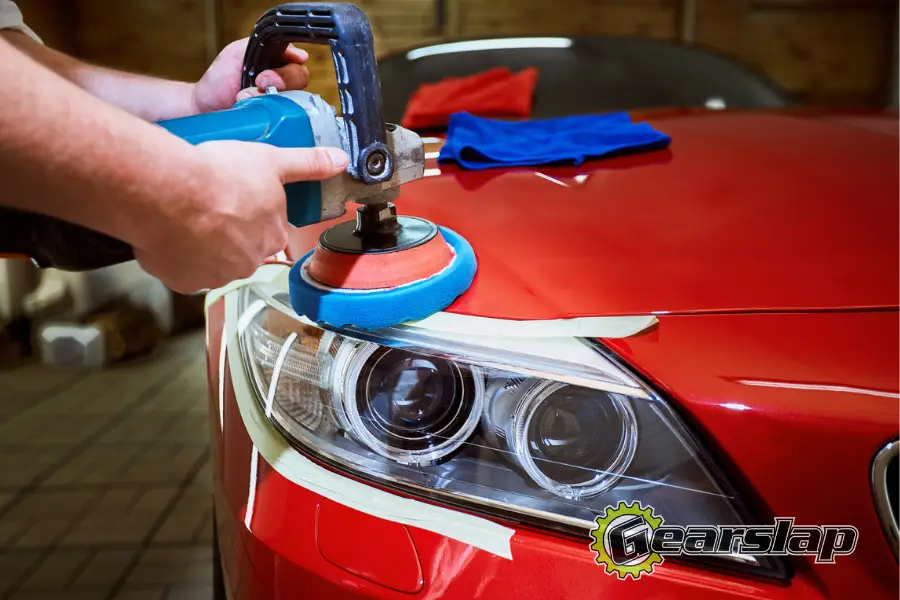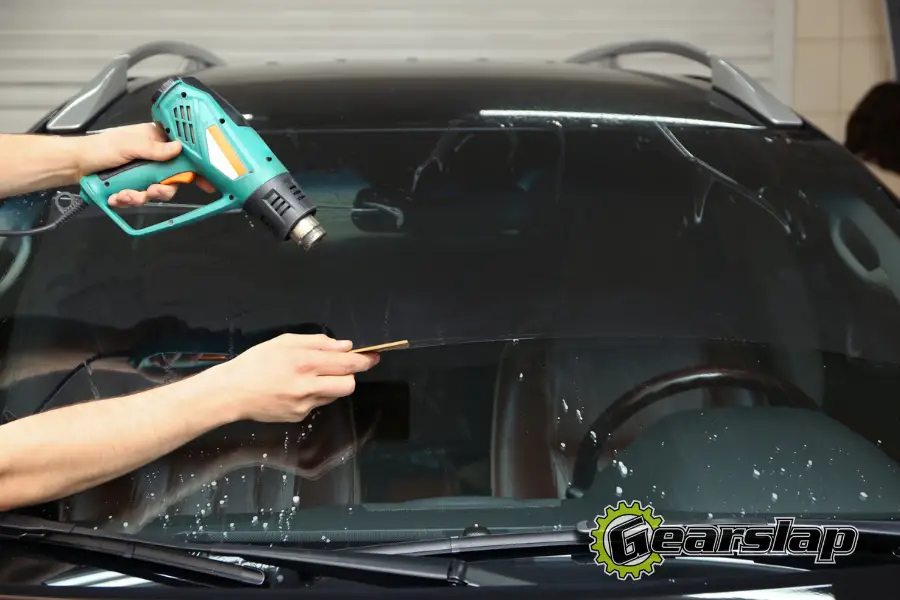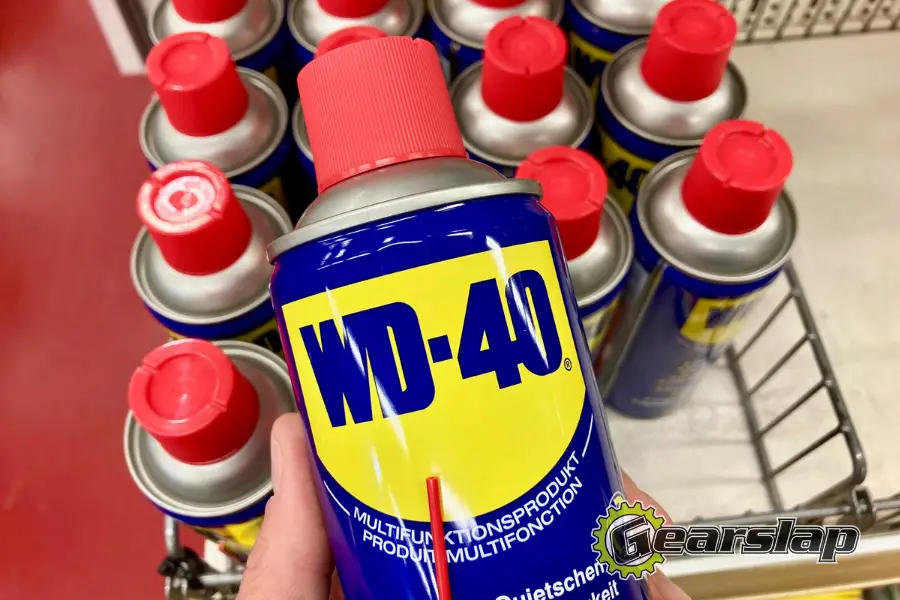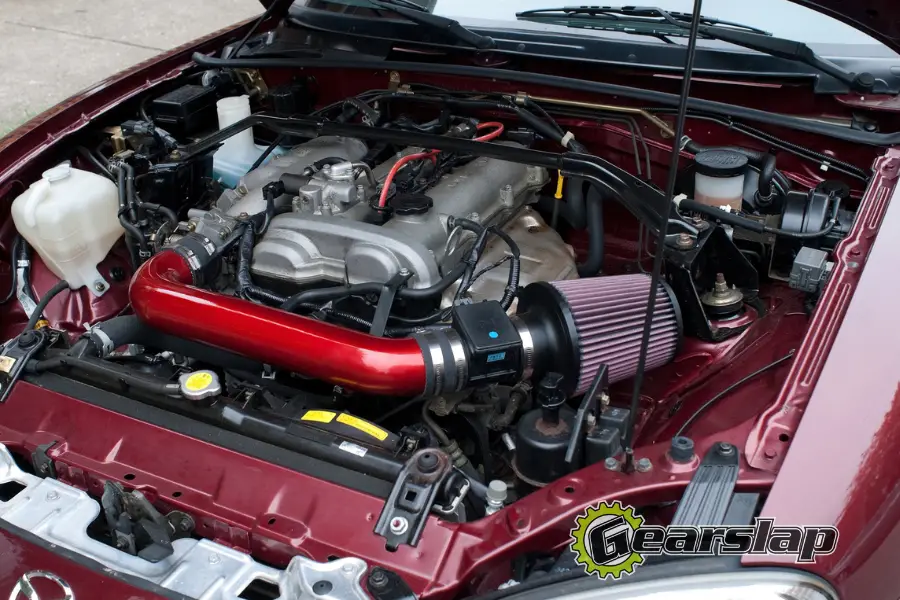Imagine yourself working in your garage, and you reach over to grab a can of carb cleaner, only to find that you are entirely out. You do have brake cleaner and throttle body cleaner on hand, though. So instead of cleaning up and heading out to the parts store, you may wonder, can you use brake cleaner instead of carb cleaner?
Although these products are typically available at any auto parts store, each has its own composition and function for cleaning and maintenance. Depending on the work you are doing, some products can be interchanged with others, while some situations require these specialized items. Being aware of their uses and substitutions will help you when you are in a pinch.
What Is Carb Cleaner?
Carb cleaner uses several powerful chemicals to help break down built-up deposits within carburetors without damaging any parts. Some of these chemical additives include:
- Acetone
- 2-Butoxyethanol
- Ethylbenzene
- Methyl ethyl ketone
- Propane
- Toluene
- Xylene
This product is available in single aerosol cans or gallon jugs at many retailers. The combination of these chemicals is the ideal mixture for removing carbon deposits, varnish build-up, dirt, and other grime from the carburetor.
Carb cleaner is safe enough to use on vinyl, rubber, seals, gaskets, and other sensitive materials. However, you should not use this product on any painted area or powder-coated materials since it will damage the surface.
Be sure to always use protective equipment when using carb cleaner and ensure you are in a well-ventilated area.
What Is Brake Cleaner?
Brake cleaner comes in chlorinated and non-chlorinated variants that use different ingredients to get the job done. Although chlorinated variations have been around longer, non-chlorinated products consist of fewer ozone-harming ingredients, even with the harsh chemicals it includes. Oddly enough, the chlorinated versions are non-flammable, while the less harmful non-chlorinated variation is highly flammable.
You can find a combination of these components within a product when choosing a brake cleaner for your shop:
- Perchloroethylene (Perc)
- Methylene Chloride (MeCl)
- Trichloroethylene (TCE)
- Dichloromethane
- Heptane
- n-Hexane
- Acetone
- Isopropyl alcohol
- Low-toxicity petroleum hydrocarbons
Brake cleaners are mainly to degrease metal components, helping to rid the area of dust, debris, oils, fats, and other substances without leaving behind a residue. Take precautions by using personal protective equipment when handling brake cleaner and ensure proper air circulation of the area.
There are also several other uses for brake cleaners besides brake components. Surprisingly enough, you can use this product for:
- A practical laundry stain remover
- Floor cleaner
- Paint or ink remover
- Gun cleaner
Anytime you use a brake cleaner, be sure to follow proper safe handling and storage procedures.
Can You Substitute Brake Cleaner For Carb Cleaner Or Vice Versa?
Now that you know the differences, you may wonder, can you use brake cleaner for cleaning carburetors? Surprisingly, you can safely use brake cleaner to clean out a carburetor, but professionals do not recommend using carb cleaner for your brakes.
Carb cleaner can leave behind residue and is not oil-free, which is critical for helping an engine run smoothly. This feature is not beneficial for cleaning brakes. So, unfortunately, these two products are not entirely interchangeable as one will work for both instances, and the other will not.
What Should You Not Use Brake Cleaner On?
Because of the specific composition of brake cleaner, it is a versatile cleaner for many engine parts. But, unfortunately, that does not mean it is a cleaner for everything.
It does contain harsh chemicals that can do damage if you are not careful. You should not use it on powder-coated or painted surfaces, plastic intake manifolds, rubber grommets, or plastic surfaces. Brake cleaner is also harmful to neoprene and vinyl materials.
Is Brake Cleaner the Same as Throttle Cleaner and Other FAQs
After exploring the many similarities and differences between carb cleaner and brake cleaner, you may naturally have questions about your throttle body. The throttle body can contain a build-up of carbon deposits, making it critical for a cleaner that can cut through these substances. If carbon build-up sounds familiar, you may look for alternatives to throttle body cleaners in a pinch.
Can I Use Carburetor Cleaner on a Throttle Body?
Because carburetor cleaners are ideal for helping to break up and remove carbon deposits and varnish from engine parts, it is safe to use on your throttle body. In addition, it is less harsh and will not damage materials such as rubber and seals.
Can I Use Brake Cleaner On My Throttle Body?
Since brake cleaner is terrific for cleaning dirt and debris, will this product also work for your throttle body? Unfortunately, brake cleaner is harsher than throttle cleaner, so it is not ideal to use it as a substitute when you run out.
Can You Clean Fuel Injectors With Brake Cleaner?
Your fuel injectors may require attention at one point. If you have brake cleaner on hand, you may wonder if this product is safe to use to get the job done. Although brake cleaner can clean many metal surfaces without leaving behind any oily residue, this product will not have many benefits for fuel injectors.
Is Carb Cleaner the Same As a Degreaser?
Carb cleaner is an effective way to clean surfaces without the use of water. Because of this feature, it is different from standard degreaser products. Many degreaser items require you to rinse with water after using it to remove any residue, while carb cleaners do not need a final rinse.
Can You Clean a Carburetor Without Removing It?
Yes, it is possible to clean a carburetor without removing it from the vehicle. This feature is one of the benefits of carb cleaners, making it easier to complete these jobs with less effort.
Is Brake Cleaner Safe To Use On Aluminum?
Unfortunately, aluminum wheels and components will have a coating that a harsh brake cleaner will easily eat right through, causing damage. Therefore, if you have aluminum wheels, you must ensure you do not get any brake cleaner products on them. If it happens, there are ways to help cover up these stains or make them less noticeable.

